Oak Ridge Boys

-
Inducted2015
-
Band Members:
- Duane Allen
- Richard Sterban
- Joe Bonsall
- William Lee Golden
Duane Allen
Born April 29, 1943
Birthplace Taylortown, Texas
Joe Bonsall
Born May 18, 1948
Birthplace Philadelphia, Pennsylvania
William Lee Golden
Born January 12, 1939
Birthplace Brewton, Alabama
Richard Sterban
Born April 24, 1943
Birthplace Camden, New Jersey
The Oak Ridge Boys brought the dynamic energy and four-part harmonies of gospel quartets to contemporary country music.
Starting Out as the Oak Ridge Quartet
The history of the Oak Ridge Boys stretches back to the 1940s. Wally Fowler, who came to be known as “Mr. Gospel Music,” changed the name of a singing group called the Georgia Clodhoppers to the Oak Ridge Quartet, because the Knoxville, Tennessee, group performed regularly in nearby Oak Ridge.
Fowler moved the Oak Ridge Quartet to Nashville, where, in 1946, the group became regulars on the Grand Ole Opry. Singing in a four-part harmony style, they made frequent appearances on the Opry’s Prince Albert Show, broadcast nationally on NBC Radio, from 1939 to 1957. Fowler also popularized “all-night singings,” concerts that lasted from Saturday night until early Sunday morning, during which several gospel groups would perform.
Fowler sold the rights to the Oak Ridge Quartet name in 1957, to concentrate on hosting a popular syndicated TV program. In 1962, the group began experimenting with calling themselves the Oak Ridge Boys, a change they made permanent in 1966. Alabama native William Lee Golden, a baritone, joined the group in 1965. The following year, Duane Allen, from Texas, became lead singer. New Jersey native Richard Sterban, who sang with Elvis Presley as a member of gospel group J. D. Sumner & the Stamps, took over as bass singer in 1972. One year later, when tenor Joe Bonsall from Philadelphia signed on, the group’s long-running, best-known lineup was set.
00:00 / 00:00
00:00 / 00:00
00:00 / 00:00
From Gospel to Country
When Bonsall joined in 1973, the Oak Ridge Boys already ranked among gospel music’s most acclaimed acts and had won three Grammy Awards and several Gospel Music Association Dove Awards. That year, the group signed with Columbia Records, with help from Johnny Cash, who had used them in his touring act and to provide harmony on his single “Praise the Lord and Pass the Soup.” Their two albums for the label did not receive much attention, however.
Country music executive Jim Halsey began managing the Oak Ridge Boys and convinced the band they were one hit away from being country stars. When the group moved to ABC/Dot (soon absorbed by MCA Records), they had the breakthrough Halsey had envisioned: “Y’all Come Back Saloon” became a #3 country hit in 1977. The successes piled up quickly after that, among them the #1s “I’ll Be True to You,” “Leaving Louisiana in the Broad Daylight,” “Trying to Love Two Women,” and “(I’m Settin’) Fancy Free.”
The Oak Ridge Boys began recording songs in a style that helped country music embrace a more contemporary sound, and their look changed with the times. The four members grew longer hair and updated their stage clothing; Golden’s flowing white beard and floor-length coats became part of the group’s identity, as did Sterban’s interest in cutting-edge men’s fashion. Although Allen sang the lead vocal most often, all four singers were featured at times, including on hit recordings.
Videos
“Elvira”
Music City News Awards, 1981
“Leaving Louisiana in the Broad Daylight”
Pop! Goes the Country, 1979
The Oak Ridge Boys began recording songs in a style that helped country music embrace a more contemporary sound, and their look changed with the times.
-
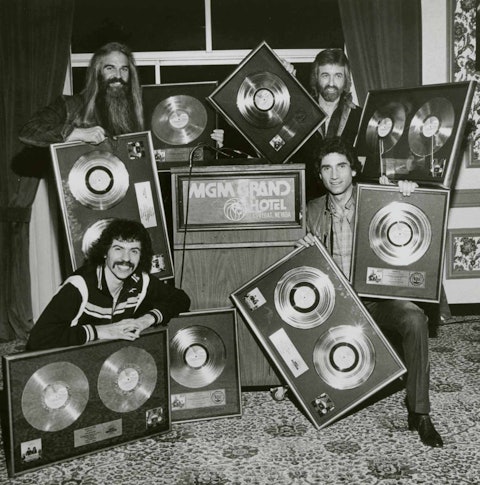
The Oak Ridge Boys pose with awards for their Fancy Free album, 1981.
-
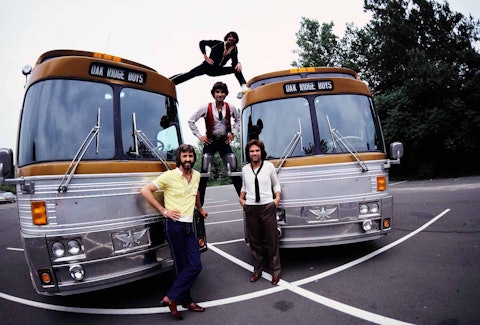
The Oak Ridge Boys, 1979. Photo by Raeanne Rubenstein.
-
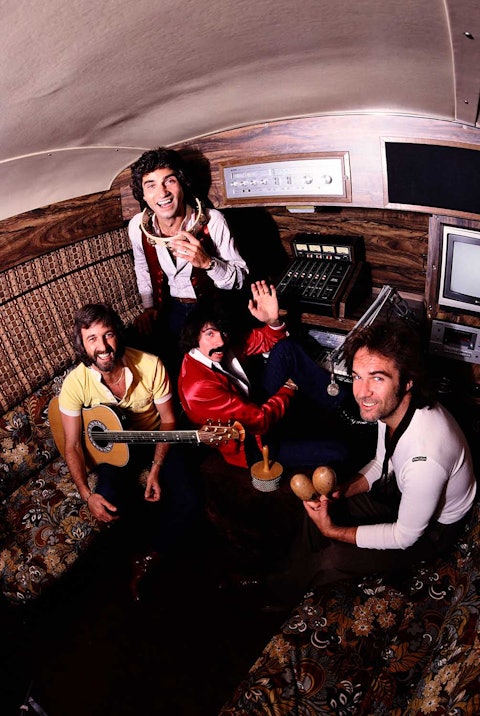
The Oak Ridge Boys, 1979. Photo by Raeanne Rubenstein.
-
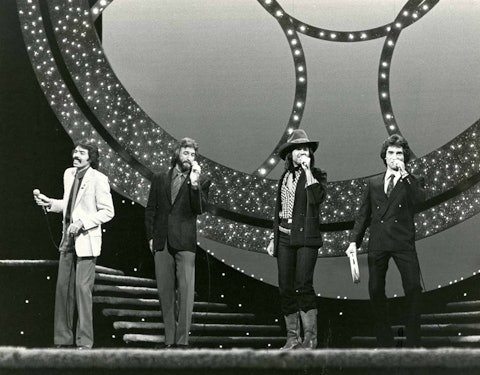
The Oak Ridge Boys perform at the Country Music Association Awards, 1979. Photo by Steven Goldstein.
-
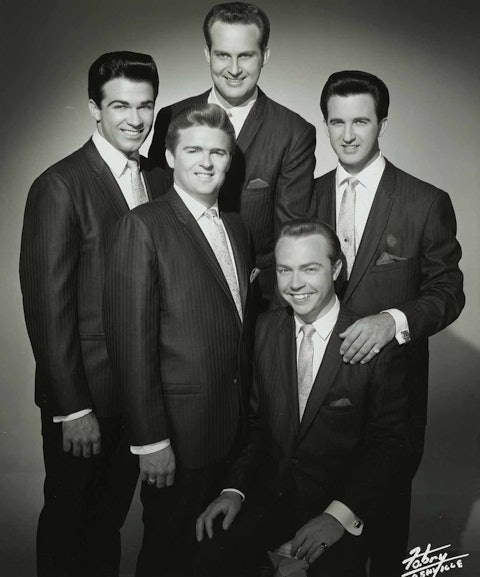
The Oak Ridge Boys, 1960s. From left: William Lee Golden, Willie Wynn, Herman Harper, Tommy Fairchild, and Duane Allen. Photo by Walden S. Fabry.
-
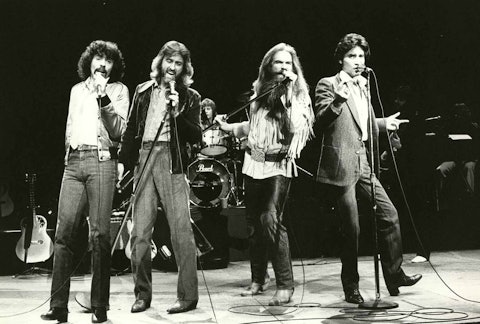
The Oak Ridge Boys, 1970s.
-
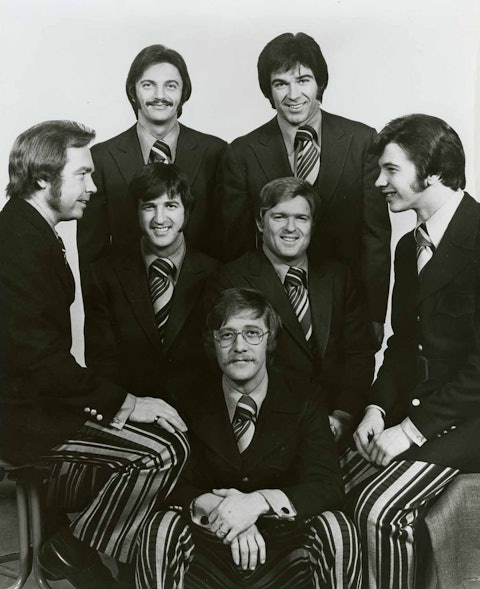
The Oak Ridge Boys, 1970s. Duane Allen is seated second from left, while William Lee Golden is standing on the right.
-
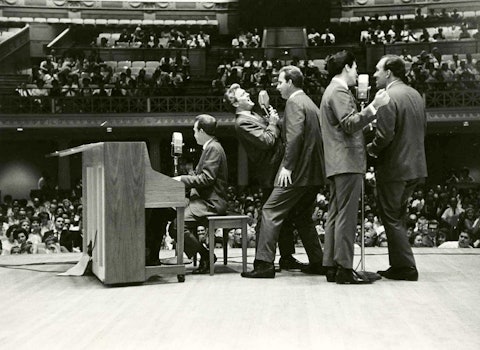
The Oak Ridge Boys perform at Nashville’s War Memorial Auditorium, 1960s.
-
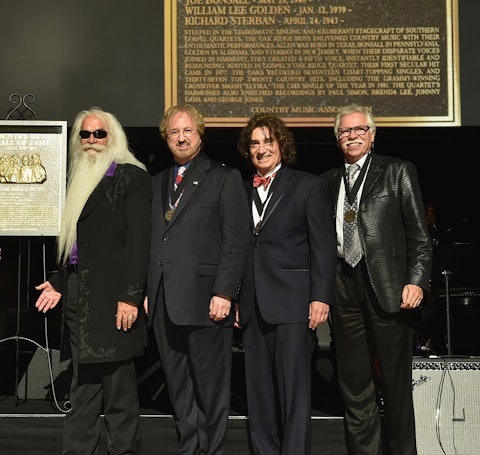
The Oak Ridge Boys at their Country Music Hall of Fame induction, 2015. Photo by Rick Diamond.
-

The Oak Ridge Boys perform at the CMA Theater at the Country Music Hall of Fame and Museum, 2018. Photo by Amiee Stubbs.
Crossover Success
“Elvira” became the Oak Ridge Boys’ first crossover hit, in 1981, when it climbed to #1 on the country chart and #5 on the pop chart. Sterban’s low-as-you-can-go bass vocals on the blockbuster helped lock the song into the public’s consciousness. “Elvira” won a Grammy for Best Country Vocal Performance by a Duo or Group, one of five Grammys the band has won.
In 1982, the doo-wop–influenced “Bobbie Sue,” another #1 country record, reached #12 on the pop charts. The 1983 #1 “American Made” became a popular advertising jingle for an American beer company. In total, the Oak Ridge Boys have achieved thirty-four Top Ten hits— including seventeen #1s—sold millions of albums, packed concert arenas, and won numerous industry awards.
The Oak Ridge Boys also became welcome guests on the recordings of other artists. Paul Simon enlisted the group to sing harmony on his 1977-1978 international pop hit “Slip Slidin’ Away.” The quartet’s voices could also be heard on Brenda Lee’s Grammy-nominated “Broken Trust” in 1980; George Jones’s classic “Same Ole Me” in 1982; and recordings by Ray Charles, Billy Ray Cyrus, Bill Monroe, Leon Russell, and many others.
Lineup Changes
In 1987, Golden left the Oak Ridge Boys and was replaced by Steve Sanders, who had been playing acoustic guitar in the quartet’s band. Sanders occasionally sang vocals, including on the 1988 #1 hit “Gonna Take a Lot of River.” After Sanders resigned from the group in January 1996, Golden returned to the fold. The Oak Ridge Boys’ lineup has stayed constant ever since.
After “No Matter How High,” a #1 from 1989, the Oak Ridge Boys’ long run of chart successes declined, but the group’s concerts have remained a top draw for decades to come. In 2000, the group signed with Spring Hill Records and began releasing gospel recordings again. In subsequent years, they also have cut bluegrass, holiday, and patriotic-themed recordings.
The Oak Ridge Boys were inducted into the Gospel Music Hall of Fame in 2000. Bonsall and Sterban were enshrined in the Philadelphia Music Alliance Walk of Fame in 1994, while Golden became a member of the Alabama Music Hall of Fame in 1997 and Allen entered the Texas Country Music Hall of Fame in 2014.
—Walter Carter
Adapted from the Country Music Hall of Fame® and Museum’s Encyclopedia of Country Music, published by Oxford University Press



